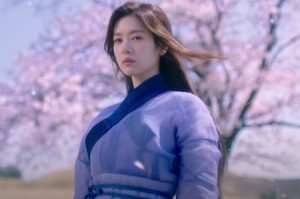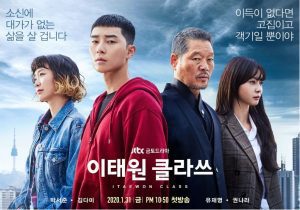15 Great K-dramas With Terrible Endings
In the world of Korean dramas compelling storytelling is everything. With their intricate plots, fleshed-out characters, and intricate narrative arcs, these shows have captured the hearts of millions of viewers worldwide, transcending cultural and language barriers. Even the most gripping storylines can leave audiences with a bitter taste if they’re not wrapped up effectively. Endings, after all, are the final note that resonates with audiences, the last taste of an epic journey that can color the entire experience.
One common gripe among K-drama aficionados is the disappointing ending. In some cases, K-dramas that have been otherwise excellent fall short in the final stretch, often due to rushed pacing, unexpected plot twists, or a departure from the narrative logic established throughout the series. Even popular dramas are not immune to this, proving that excellent writing must be consistent right until the end credits roll.
In this article, we break down 15 otherwise great K-dramas that have stumbled at the finish line. While these dramas remain great in their own right, their endings have been the subject of much debate and disappointment among viewers, underlining the importance of a good conclusion.
Memories of the Alhambra
Memories of the Alhambra follows Yoo Jin-woo, a CEO of an investment company, who travels to Spain and gets involved in a series of mysterious incidents surrounding an innovative augmented reality game inspired by the stories of the Alhambra Palace.
Despite its promising premise and initial excitement, the ending of Memories of the Alhambra left a lot to be desired. It received criticism for its rushed pacing and confusing plot resolutions. Fans felt that the storylines of important characters were left unattended, there were way too many flashbacks and repeated sequences, while the narrative failed to provide satisfactory explanations to the series’ complex plot. Oh, and there’s also a cliffhanger at the end too.
Black
Black is a supernatural thriller that explores the concept of grim reapers who are invisible to humans unless they are possessed by a human body. The story follows a grim reaper named Black and a woman named Kang Ha-ram, the latter of which granted the ability to foresee death.
The ending of Black was controversial at the time because of its confusing and complicated narrative. Plotlines crucial to the story were hastily wrapped up with very little care, and some were discarded altogether. Moreover, viewers felt that the tragic ending, while arguably in line with the series’ dark themes, was cruel and unsatisfying, leaving a sour aftertaste.
Itaewon Class
Itaewon Class tells the story of Park Sae-ro-yi, a determined young man who seeks revenge on a food conglomerate after his son caused the death of his father. Sae-ro-yi plays the long game, starting his own restaurant, rallying a group of misfits, and hitting the Chairman where it really hurts, all whilst trying to take down his empire.
The first half of Itaewon Class is excellent, with solid pacing and some really nice moments. However, a final time-jump and some questionable plot elements late on make the ending very mixed and somewhat disappointing. Fans criticized the last few episodes for introducing a rushed love triangle romantic subplot that felt out of place and underdeveloped.
The show’s strong focus on personal growth and challenging societal norms was overshadowed by deus ex machina and contrivances, leading to a conclusion that didn’t live up to the show’s initial promise.
Do Do Sol Sol La La Sol
Do Do Sol Sol La La Sol is a fluffy romantic comedy about a pianist named Goo Ra-ra, who hits rock bottom after her family’s downfall. She then meets a mysterious guy named Sun Woo-joon at a small private piano academy in a countryside village. The pair hit it off and slowly start to grow closer together.
The ending of Do Do Sol Sol La La Sol was negatively received due to its sudden and seemingly out-of-place plot twist. The introduction of a life-threatening illness in the last episode felt contrived and rushed, completely deviating from the otherwise lighthearted tone that had been maintained throughout the series. This narrative choice felt emotionally manipulative, designed for drama rather than organic development.

Start-Up
Start-Up is a drama set in South Korea’s fictional Silicon Valley, called Sandbox. It follows the journey of Seo Dal-mi who dreams of becoming Korea’s Steve Jobs, and Nam Do-san, founder of start-up company Samsan Tech. The story encompasses their struggles and successes in the competitive world of start-up companies.
However, the real star of the show is Han Ji-Pyeong, whose character is handled incredibly poorly within the main romance and also in the overall narrative. A significant portion of viewers were displeased with the final romantic pairing, arguing that the narrative spent excessive time building up one love interest, only to have the lead character end up with the other.
This perceived imbalance in the romance, not to mention a questionable message about business (just take a leap of faith without planning anything) left many fans feeling unsatisfied and disappointed with the ending.
The Penthouse Season 3
The Penthouse is a drama revolving around the life of wealthy families living in a 100-floor luxury penthouse apartment. It portrays their ambition, desire for power, and the dark, scandalous secrets they hide.
Despite the series’ high ratings, Penthouse has been criticized for its excessive plot twists and character resurrections in the later episodes, making the narrative convoluted and unrealistic. In fact, season 3 as a whole was an exercise in how to undo years of drama, with a sensationalist approach that was seen by some as a detriment to the show’s overall quality.
Love Alarm Season 2
Love Alarm Season 2 continues the complicated love triangle that began in the first season, in a world where a mobile application can tell individuals if someone within a 10-meter radius has romantic feelings for them. In this season, Kim Jojo finally confronts her feelings for Hwang Sun-oh and Lee Hye-yeong, while also dealing with personal growth and her unresolved past.
The second season was met with criticism, primarily due to its shift in narrative focus. Some viewers felt that the storyline lacked any sort of resolution to the love triangle, which was a significant element of the first season. Additionally, the follow-up only had 6 episodes, making the plot feel rushed and many story arcs underdeveloped.
Now, We Are Breaking Up
Now, We Are Breaking Up is a romantic drama that tells the story of love and breakups between Ha Young-eun, a fashionable and realistic design team leader, and Yoon Jae-guk, a popular and wealthy businessman in the fashion industry.
Criticism towards the show’s ending centers around the narrative’s apparent lack of character development and the main characters’ repeating cycle of breaking up and reconciling. This cyclical plotline, while potentially realistic, left many frustrated and disappointed, longing for a more definitive and satisfying resolution.
Angel’s Last Mission: Love
Angel’s Last Mission: Love is a fantasy romance about a trouble-making angel named Kim Dan who is tasked with finding love for a cold-hearted ballerina named Lee Yeon-seo in order to remain on Earth.
The ending of Angel’s Last Mission: Love was controversial due to its inconsistency with the drama’s established rules about heavenly beings. Some fans were dissatisfied with the narrative’s deviation from its own logic in order to achieve a happy ending, believing it felt forced and implausible, undermining the overall integrity of the entire series.
Because This Is My First Life
Because This Is My First Life is a romantic comedy that examines the institution of marriage, the problems that young people face today, and how people aren’t as different as they think they are. The plot centers around two housemates, Yoon Ji-ho, a scriptwriter struggling with financial and professional issues, and Nam Se-hee, a man who owns the house and has given up on dating due to financial problems, who enter a contractual marriage for their mutual benefit.
As for the ending, Because This Is My First Life is actually generally well-regarded and many viewers appreciated the thoughtful and mature handling of relationships. However, some thought that the last few episodes felt rushed and that the sudden breakup and fast reconciliation between the lead characters was out of character, given the meticulous character development up to that point.
If that wasn’t enough, the show tried to wrap up too many loose ends quickly, which led to some dissatisfaction with the ending.
Twenty Five Twenty One
A show can live or die by its ending. As we’ve seen with disasters like Game Of Thrones, the quality that preceded a closure can fall to the wayside and amount to nothing if you don’t stick the landing. This series features a solid story, excellent characterization and one of the best soundtracks seen in any Korean drama for quite some time.
Unfortunately, many fans were divided and torn over the ending, which saw an abrupt tonal shift from the uplifting and hopeful set of episodes early on, to something far darker and more bittersweet by the time this wraps up. Not only that but it also left unresolved plot points, a couple of loose ends and an unresolved romance. While some enjoyed this shift, it’s undoubtedly caused a huge rift with K-drama fans.

Reborn Rich
In a recent poll with over 20,000 avid K-drama fans in Korea, an overwhelming 7000 rated Reborn Rich as one of the worst endings to a Korean drama in recent memory. The show broke broadcast records when it was on, and its story – depicting a loyal employee murdered and reborn as the youngest son of that same company, seeking revenge on the conglomerate family – was absolutely gripping and enticing.
This fell apart late on, with the show taking a drastic detour away from the original webtoon. The ending divided many people, and even worse, it confused others to the point of alienating those who had stuck with this one until the end.
Vagabond
Vagabond is an action-packed Korean drama that revolves around Cha Dal-geon, a stuntman who becomes embroiled in a massive corruption scandal as he investigates the mysterious plane crash that killed his nephew. His quest for truth leads him to team up with Go Hae-ri, a covert operative for the National Intelligence Service.
While “Vagabond” was a hit for its thrilling action sequences and engaging plot, the ending was a major point of contention among fans. The narrative does not conclude with closure or resolution… we get a cliffhanger. Not only does it set up for a second season that’s never going to arrive, it also lacks any answers to the main storyline, leaving plenty of viewers unsatisfied and frustrated.

Alchemy of Souls
Alchemy of Souls undoubtedly gripped the world when it aired its two seasons in Korea and on Netflix. The eclectic blend of fantasy, history, romance and drama managed to entice many into this whimsical world. The storytelling, for the most part, managed to do well to keep things exciting and fresh… until the ending. The finale for season 1, leading into the entirety of season 2m, did an absolute hash-job of the story, introducing deus ex machina and contrivances that completely undermined the story.
With the main actress changed for season 2, story, pacing and plot issues became all too frequent for the final chapters, all wrapped up with a number of common and tired tropes including the infamous amnesia.
Big Mouth
Finally, no “K-dramas with bad endings” would be complete without Big Mouth. As our reviewer put it, this is a “truly gripping thriller with a bitter-tasting ending.”
For a story running on the fuel of high-octane scenes and dramatic reveals, the ending was anticlimactic. It lacked the thriller factor and even worse, was terribly paced. It put so much focus on a plotline that wasn’t interesting and then rushed to resolve everything in a quick montage within the last few minutes.
It didn’t answer all the mysteries that were set up either, leaving viewers with several plot holes. The few significant events that took place were not executed well, leaving you waiting for an emotional payoff that never comes.
So there we have it! Our top 15 picks for great K-dramas with terrible endings. Do you agree with our picks? Think we’re missing one? Let us know in the comments below!












